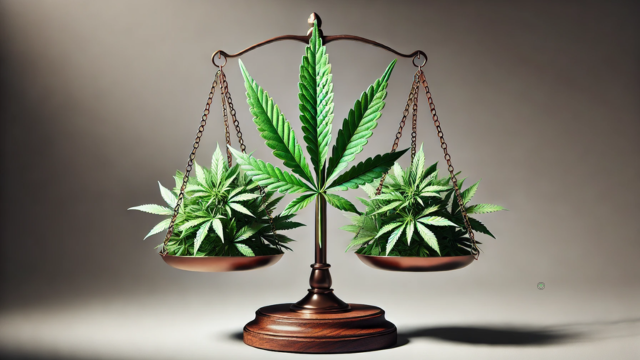The hemp industry stands at a crossroads, with significant state and federal changes on the horizon that will shape its future. Since the legalization of hemp through the Agriculture Improvement Act of 2018 (commonly known as the Farm Bill), the industry has experienced exponential growth, particularly in the market for hemp-derived cannabinoids such as delta-8 THC. However, recent legislative actions at both state and federal levels are set to redefine and potentially restrict several hemp-based products.
The Legal Landscape: State and Federal Hemp Regulations
Federal Framework
The 2018 Farm Bill legalized hemp by defining it as cannabis containing no more than 0.3% delta-9 THC on a dry weight basis. This created a legal market for hemp-derived cannabinoids, leading to a booming industry for products like delta-8 THC, which are commonly found in retail stores that are not dispensaries. However, the broad definition of hemp also opened what some consider a loophole, allowing the sale of potentially intoxicating cannabinoids other than delta-9 THC.
In November 2023, President Biden extended the 2018 Farm Bill through September 30, 2024, delaying the anticipated federal update that might address these issues. This extension means the Farm Bill 2024 will be crucial in determining the future of hemp regulations. As a result, states have taken the initiative to impose their own restrictions on hemp-derived cannabinoids.
State-Level Regulations
Several states have introduced or enacted laws to curb the sale of intoxicating hemp products. For instance, California aims to ban synthetically derived cannabinoids, while Florida’s new bills propose stringent limits on delta-9 THC in hemp products. Even South Dakota is seeking to restrict chemically modified cannabinoids like delta-8 and delta-10 THC. These state-level efforts are part of a broader trend to impose “total THC” limits, which consider the combined content of all THC variants in a product, making many hemp-derived products non-compliant.
These proposed changes in the legislation present significant challenges for hemp businesses. With each state imposing its own rules, companies must navigate a complex web of regulations, which can hinder growth and sales. These regulatory inconsistencies create economic uncertainties and could drive some businesses out of the market or push them toward the black market. The broader restrictions are likely to have a significant economic impact, particularly in states without legal marijuana markets, where hemp products fill a gap.
The Battle Between Hemp and Marijuana
The legislative battle over hemp-derived cannabinoids has intensified, pitting the hemp industry against the marijuana industry. Some marijuana companies and trade groups are lobbying Congress to close the loophole that allows the sale of intoxicating hemp products, arguing that it undermines the regulated marijuana market. On the other hand, hemp industry advocates are pushing to maintain the current federal definition of hemp, emphasizing the economic benefits and consumer demand for these products.
This debate has reached Capitol Hill, where the House Agriculture Committee is considering amendments to the upcoming Farm Bill that could impose stricter regulations on hemp products. The outcome of this legislative battle will have profound implications for both industries, as they vie for market share and regulatory favor.
The Future of Hemp-Derived Cannabinoids
The future of the hemp-derived cannabinoid market hinges on several key factors. Federal legislation plays a critical role. If the Farm Bill is passed, it could introduce significant changes to the legal status of hemp-derived cannabinoids. Lawmakers may redefine what qualifies as hemp, potentially raising the THC limit from 0.3% to 1%. However, it remains uncertain whether Congress will address the broader regulatory framework for these products.
As more states introduce restrictive measures of their own, the resulting patchwork of regulations will continue to be a challenge, especially for businesses operating across state lines. Companies will need to adapt to changing laws and implement strategies to remain compliant.
What’s Next for the Hemp Industry
The hemp industry is at a pivotal moment, facing significant regulatory challenges and opportunities for growth. Businesses must stay informed and adaptable, navigating the evolving legal landscape while advocating for a regulatory framework that supports innovation and the hemp industry’s growth.
As lawmakers debate the future of hemp and its place in the Farm Bill, the industry must prepare for potential changes and advocate for policies that recognize the economic and social benefits of hemp products. With a collaborative approach and a commitment to regulatory compliance, the hemp industry can navigate these uncertain times and position itself for continued growth.
